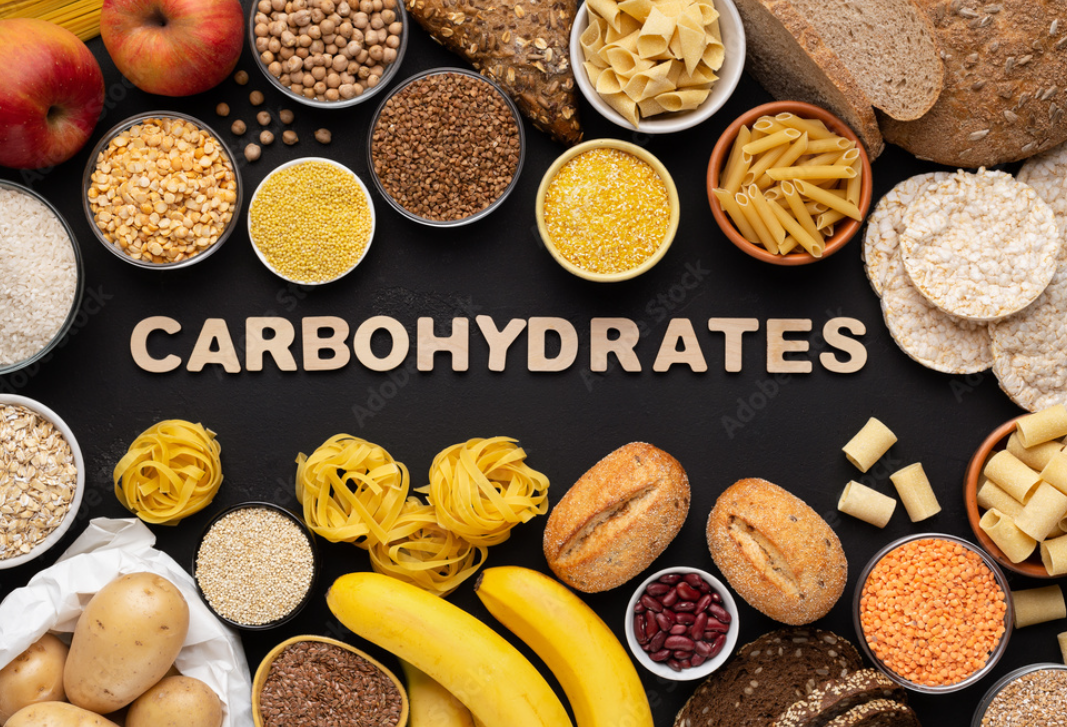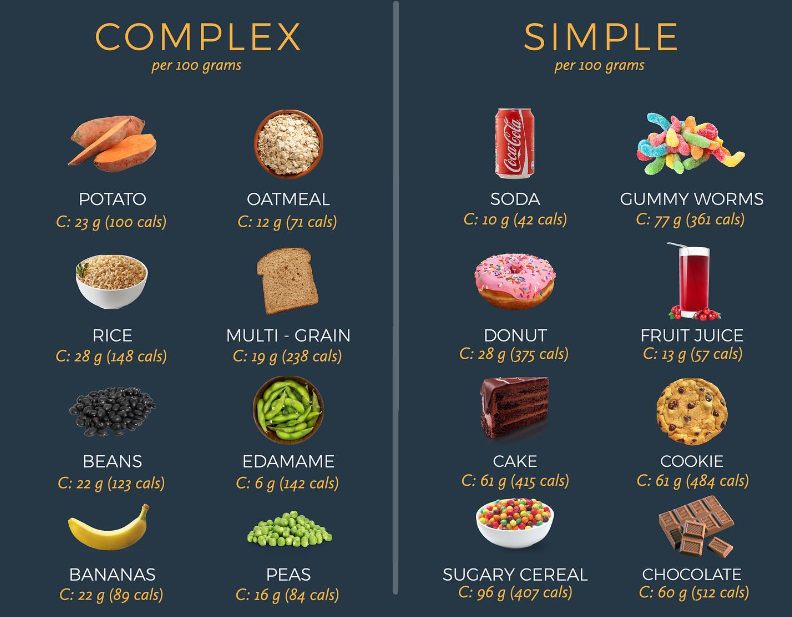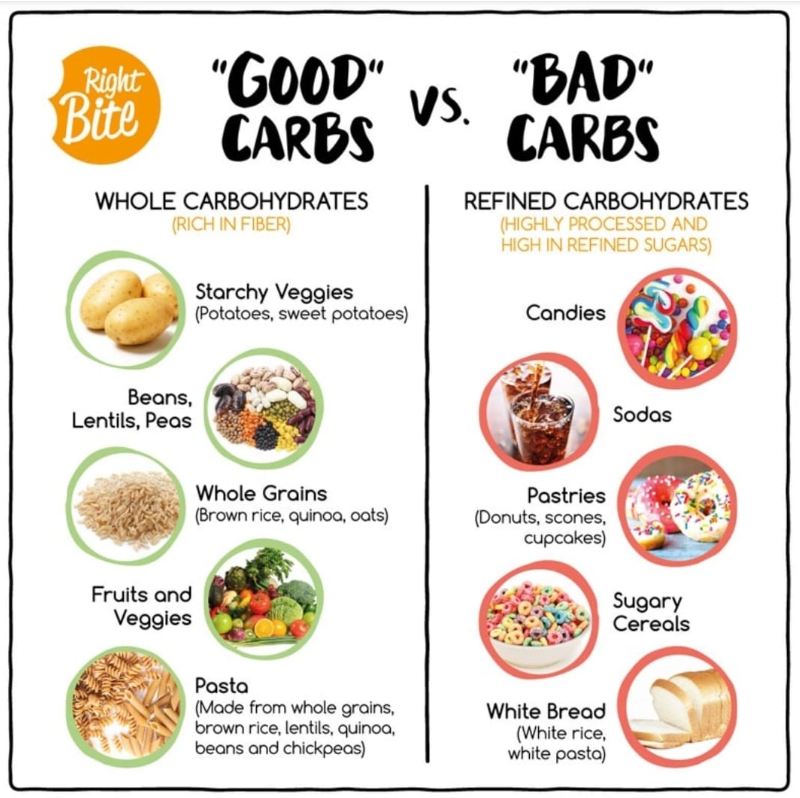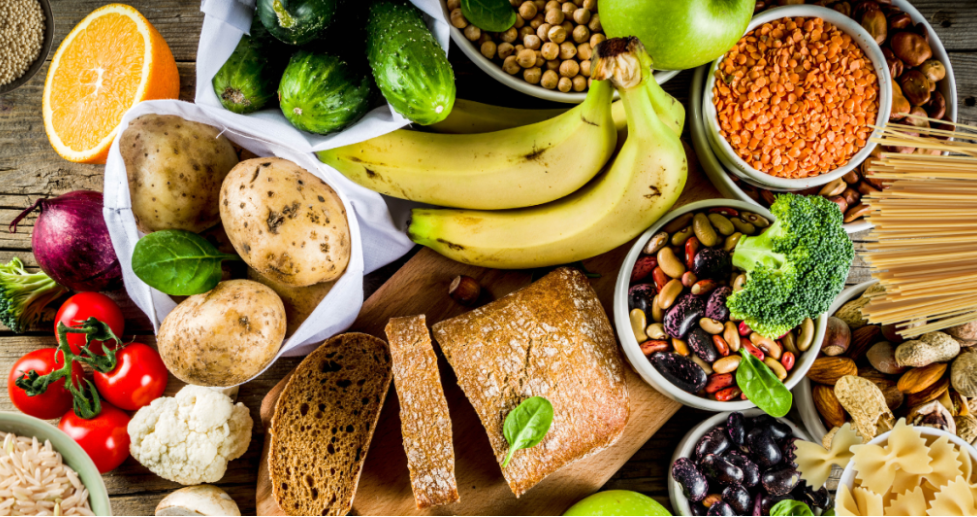Carbohydrates often get a bad reputation in today’s diet culture, with many people believing that cutting out carbs entirely is the key to staying fit and healthy. But the truth is, you don’t have to cut out all carbs.
Carbs are not all the same. While some can lead to weight gain, others are essential for fueling your body, supporting brain function, and promoting long-term health. The key is knowing which carbs to embrace and which to avoid. Here we will discuss 10 carbs that should be added to your diet to stay fit and energized.
What are carbs and why are they important?

Carbohydrates are the body’s primary source of energy, and they play a critical role in supporting daily functions—from powering your workouts to fueling your brain. When you eat carbs, your body breaks them down into glucose, which is used for immediate energy or stored for later use.
Simple and complex carbohydrates: Which is better and why?

Simple Carbohydrates are broken down easily and cause a quick spike in blood sugar which is later followed by a rapid drop. This can cause energy crashes and increase hunger.
They are often found in processed foods with added sugars (candy, sodas, baked goods) that lack fiber and other essential nutrients. Overconsumption of simple carbs, especially refined sugars, is linked to weight gain, increased risk of type 2 diabetes, and heart disease.
Complex carbs, on the other hand, provide a gradual and steady release of energy, helping maintain stable blood sugar levels.
They are often found in whole foods like whole grains, legumes, vegetables, and fruits, which are also rich in fiber, vitamins, and minerals. They help with digestion, make a person feel fuller for a longer duration, support sustained energy, and promote heart health by lowering cholesterol and reducing the risk of type 2 diabetes.
15 Healthy Carbs to Include in your diet

1. Sweet potatoes
Sweet potatoes are a major source of nutrients and vitamins. One sweet potato has 112 calories, 26 grams of carbs, and 3.9 grams of fiber.
Sweet potatoes also contain vitamin A, vitamin B, vitamin C, Calcium, Iron, Magnesium, Phosphorus, Potassium, Thiamine, and Zinc.
It is a rich source of antioxidants and some studies have also shown that it may help with cancer, inflammation, and heart diseases.
2. Beetroot
100 grams of boiled beetroot contains 10 grams of carbs and 2 grams of fiber.
It also contains folate, manganese, copper, potassium, magnesium, iron, vitamin C, and vitamin B6.
3. Corn
A half cup of fresh, frozen, or canned kernels has about 77 to 100 calories and 15 grams of carbohydrates.
It is naturally gluten-free. Corn is a healthy grain and a rich source of fiber, vitamins, minerals, and antioxidants. It may also promote eye and digestive health.
4. Quinoa
Quinoa is a nutritious pseudograin. Rather than eating white rice and white bread, you can incorporate high-carb grains into your diet.
The fiber in quinoa can also help with cholesterol and blood sugar levels, lowering your risk of diabetes and heart disease.
5. Brown rice
Compared with white rice, brown rice contains higher amounts of fiber, certain B vitamins (B1, B3, B6, and B9), magnesium, potassium, and iron.
Research suggests that swapping white rice for brown rice may improve blood sugar levels and help with weight control.
6. Oats
Oats are whole grain food. They are good sources of carbs and fiber.
Oats are incredibly nutritious. Whole oats are rich in antioxidants. They can also lower cholesterol levels and can improve blood sugar.
7. Bananas
Bananas are a quick source of energy and are rich in potassium and vitamins. They are one of the best fruit sources of vitamin C, vitamin B6, and manganese.
Bananas help in digestion and also aid in gastrointestinal issues.
8. Apples
100 grams of apple contain 14 grams of carbohydrates. Apples may lower your chance of developing cancer, diabetes, and heart disease.
Research says apples may help you lose weight while improving your gut and brain health.
9. Mango
Mangoes are rich in vitamins A and C, potassium, and fiber.
One cup (165 grams) of fresh mango provides 24.7 grams of carbs and 2.6 grams of fiber.
10. Dates
This fruit is rich in fiber, calcium, phosphorus, potassium, and vitamin A.
Dates are high in fiber and antioxidants. They support healthy bowel movements and also improve brain health.
11. Raisins
Raisins are dried grapes that work as a stand-alone snack or can add flavor and texture to cereal bars, salads, yogurts, or granola.
One cup of raisins has 130 g of carbohydrates. They also contain potassium, magnesium, phosphorus, and calcium.
Raisins are a good source of antioxidants too.
12. Berries
Berries are among the top sources of vitamins, minerals, and disease-fighting nutrients, and they can help reduce the risk of many age-related conditions.
Berries provide potassium, magnesium, vitamins C and K, fiber, and carbohydrates that help promote a healthy gut.
13. Kidney beans
One cup of kidney beans gives 40.36 g of carbs.
They help in lowering cholesterol and also have antioxidant properties.
14. Chickpeas
One cup of chickpeas has 44.9 g of carbs and 12.5 g of dietary fiber.
Chickpeas help in weight control, and constipation, control blood sugar levels, and also promote cardiovascular health.
15. Lentils
Lentils are popular high-protein legumes. One cup of boiled lentils provides 39.8 g of carbohydrates, 17.9 g of protein, and 15.6 g of fiber.
Lentils are high in phosphorus, potassium, calcium, and folate.
High-carb foods to avoid

When it comes to maintaining a healthy diet, you should avoid certain carbs especially heavily processed refined carbs. High-carb foods that you should try to avoid are:
- Refined Grains like White bread, white rice, pastries, and packaged cereals.
- Sugary Drinks
- Sweets and Desserts
- Processed Snack Foods
- Sugary Cereals
- Packaged Baked Goods
- Artificially Sweetened Foods
Summary
Carbohydrates are the body’s primary source of energy, crucial for fueling both physical and mental functions. Avoiding them entirely can deprive the body of essential nutrients, leading to fatigue, poor concentration, and metabolic imbalances. Thus it’s important to decide which carbs to take and which carbs to avoid. Carbs that are heavily processed, loaded with sugar, and stripped of fiber should be limited or avoided. Instead, focus on whole, nutrient-dense carbohydrates like whole grains, fruits, vegetables, and legumes to support sustained energy and overall health.
